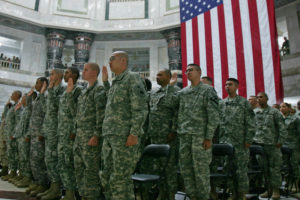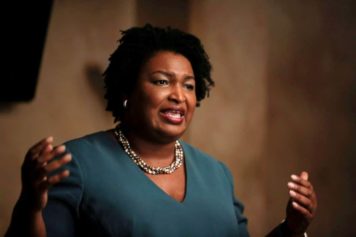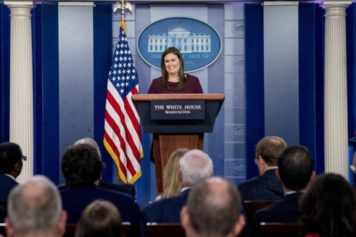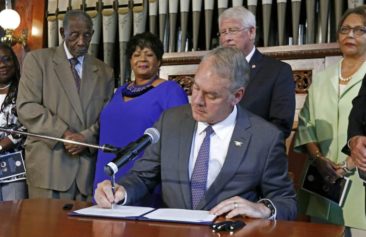
The wording popped up in a newly published Army regulation, first reported on CNN, which suggests under the Army’s Equal Opportunity Program that when referring to Blacks or African Americans “terms such as ‘Haitian’ or ‘Negro’ can be used in addition to ‘Black’ or ‘African American’.”
Ironically the section in which it appears is trumpeting the Army’s equal opportunity (EO) policy that it claims “will provide EO and fair treatment for military personnel and Family members without regard to race, color, gender, religion, national origin, and provide an environment free of unlawful discrimination and offensive behavior.”
Of course the words used to describe African Americans have evolved over time, based on community preference and self-perception. When the description “colored” began to be viewed as pejorative it eventually flowed into “Negro,” which changed to “Black” and “Afro-American” in the 1960s when civil rights leaders like Malcolm X said “Negro” was an offensive term because it was so closely linked to slavery and segregation. Exhorted by songs such as James Brown’s seminal “Say It Loud (I’m Black and I’m Proud),” the community had fully embraced “Black” by the 1970’s. In the decade or so that followed, “African American” began to be preferred by most inside the community and became the term most commonly used by mainstream media.
An unidentified military officer who CNN said specializes in personnel issues for the Defense Department told CNN the Army wording was “the dumbest thing I have ever heard,” noting the Pentagon does not use the word in any of its extensive collection of demographic data.
Lt. Col. S. Justin Platt, an Army spokesman, told CNN the word comes from an outdated section.
“The racial definitions in AR600-20 para. 6-2 are outdated, currently under review, and will be updated shortly,” he said. “The Army takes pride in sustaining a culture where all personnel are treated with dignity and respect and not discriminated against based on race, color, religion, gender and national origin.”
Though the Army’s decision to add “Negro” may sound strangely tone-deaf, it should be noted that the U.S. Census Bureau decided to include “Negro” on the 2010 census form, alongside “Black” and “African-American,” because the bureau reportedly felt some some older African-Americans still self-identify with the term—though many wouldn’t consider that enough reason to include it, recalling elderly grandparents and others in the community who were still using “colored” well into the 1970s and 80s.
This latest conflict comes after the Army drew fire earlier this year when it released new regulations banning many natural hairstyles commonly worn by Black women. The controversy even reached the halls of Congress, as the women of the Congressional Black Caucus sent a letter asking Defense Secretary Chuck Hagel to reconsider the updated rules.
The regulations, known as AR 670-1, dictated that Black women may wear their hair natural in twists or braids only if they are very narrow— no more than a quarter-inch in diameter. The Army has forbidden twists and dreadlocks since 2005, but the new regs for the first time stipulate the size of the twists—while still prohibiting dreads.
After months of intense debate, Defense Secretary Chuck Hagel announced the U.S. military had rolled back prohibitions on popular Black hairstyles within its ranks.
Three branches of service, including the Army, Air Force, and Navy, now allow service members to wear their hair in two-strand twists. The Army also increased the size of acceptable braids, and both the Army and Air Force will remove the terms “matted and unkempt” from their grooming guidelines.


